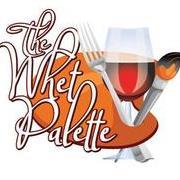-
Welcome to the eG Forums, a service of the eGullet Society for Culinary Arts & Letters. The Society is a 501(c)3 not-for-profit organization dedicated to the advancement of the culinary arts. These advertising-free forums are provided free of charge through donations from Society members. Anyone may read the forums, but to post you must create a free account.
Fine Dining vs. Cheap Eats, Continued
-
Similar Content
-
- 0 replies
- 698 views
-
- 1 reply
- 886 views
-
- 258 replies
- 57,621 views
-
- 48 replies
- 5,958 views
-
- 196 replies
- 50,916 views
-
-
Recently Browsing 0 members
- No registered users viewing this page.






Recommended Posts